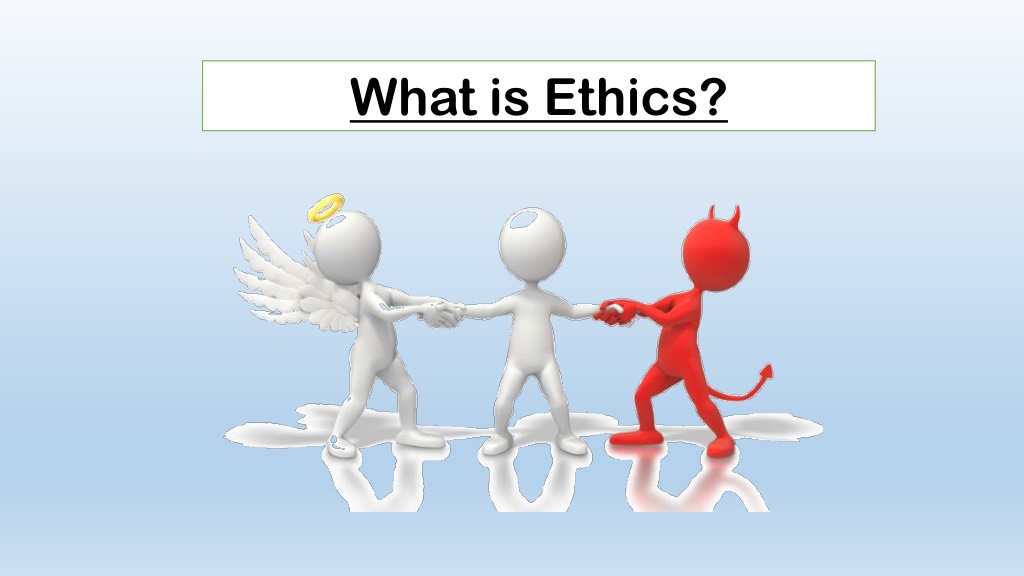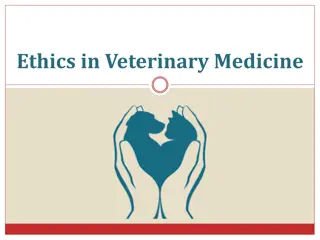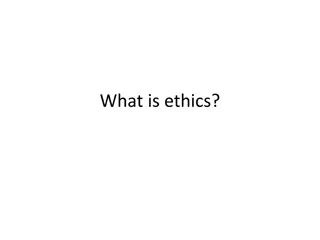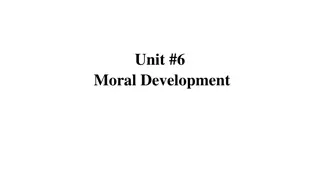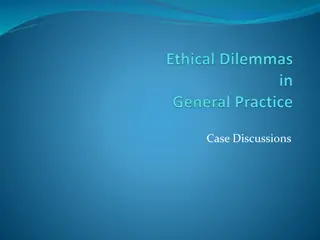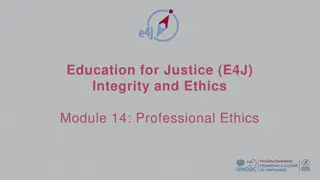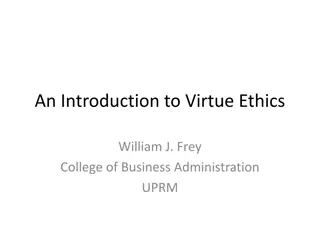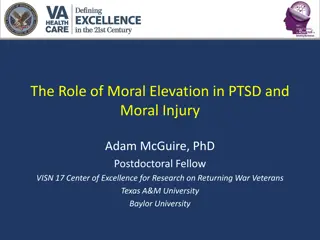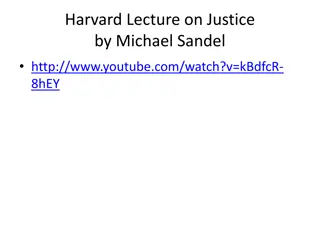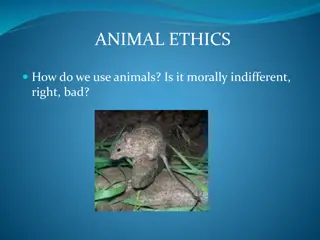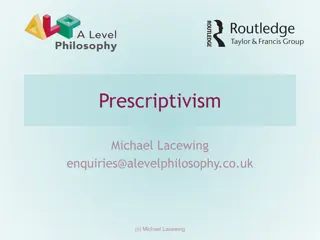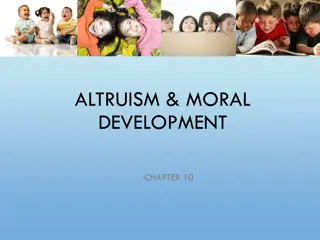Exploring Ethics: Branches, Theories, and Moral Dilemmas
Ethics delve into Meta Ethics, Normative Ethics, and Applied Ethics to understand moral concepts and decision-making. The discourse covers various ethical theories like Absolutism, Relativism, Subjectivism, and explores the difference between Teleological and Deontological decision-making. Thought-provoking scenarios prompt contemplation on ethical choices in complex situations.
Download Presentation

Please find below an Image/Link to download the presentation.
The content on the website is provided AS IS for your information and personal use only. It may not be sold, licensed, or shared on other websites without obtaining consent from the author. Download presentation by click this link. If you encounter any issues during the download, it is possible that the publisher has removed the file from their server.
E N D
Presentation Transcript
Three branches of ethics Meta Ethics Normative Ethics Applied Ethics The study of ethical language and concepts. Before we can decide what constitutes good/ what constitutes good/ bad behaviour we must bad behaviour we must define terms such as define terms such as good/ bad etc. good/ bad etc. What practically constitutes morality? Aims to put forward a method by which the method by which the right moral action can right moral action can be discovered be discovered, but MANY conflicting methods. Employing moral theories to make decisions about a real decisions about a real issue, issue, e.g. abortion. make
a moral judgement that relies upon a fixed truth. No regard for consequences. Therefore stealing is always wrong. Absolutist considers specific situations/circumstances. There are no fixed rules. judgements are based on personal opinion not on any fixed rules. Relativist Subjectivist Judgements are made on an impartial absolute fixed value system. Objectivist focused on the end result of the action. Teleological focused on the intention, rather than the outcome Deontological
Teleological vs Teleological vs Deontological decision Deontological decision making making https://www.mytutor.co.uk/answers/25753/A- Level/Philosophy/What-is-the-difference-between- deontological-and-teleological-ethics-systems/
There is a runaway trolley (train) barrelling down the railway tracks. Ahead, on the tracks, there are five people tied up and unable to move. The trolley is headed straight for them. You are standing some distance off in the train yard, next to a lever. If you pull this lever, the trolley will switch to a different set of tracks. However, you notice that there is one person on the side track. You have two options: (1) Do nothing, and the trolley kills the five people on the main track. (2) Pull the lever, trolley kills the five people on the main track. (2) Pull the lever, diverting the trolley onto the side track where it will kill one diverting the trolley onto the side track where it will kill one person. Which is the correct choice? person. Which is the correct choice? (1) Do nothing, and the
You are an inmate in a concentration camp. A sadistic guard is about to hang your son who tried to escape and wants you to pull the chair from underneath him. He says that if you don t he will not only kill your son but some other innocent inmate as well. You don t have any doubt that he means what he says. What should you do?
A young mother recently lost her job and cannot afford to buy nappies and formula for her baby. The local shop has no CTTV cameras and no security guard on the door. Should she steal Should she steal the things she needs for her young the things she needs for her young baby baby?
Teleological ethics: Teleological ethics: Utilitarianism Utilitarianism
Probably the most famous teleological ethical theory. British in origin. Two main groups . Theological Utilitarians: John Gay and William Paley Classical Utilitarians Classical Utilitarians: Jeremy Bentham (1748 (1748- -1832) and John Stuart Mill (1806 1832) and John Stuart Mill (1806- - 1873) 1873) : Jeremy Bentham
Utilitarianism is A posteriori knowledge gained through experience. Contrast this to A priori A priori- - knowledge gained through logic. A posteriori - Based on It takes an empirical empirical approach to ethics. Empirical knowledge is gained through our senses. It is teleological teleological. Telos = purpose or end . For a teleological thinker the end will justify the means. The rightness of an action is decided by the end result of the action.
Basic Utilitarianism Goodness Goodness and Rightness Rightness based on human experience. Hence it is a posteriori a posteriori and empirical. empirical. Disagreement in the details is what has lead to the different branches of Utilitarianism.
What is Good? What is Right? Good Good That which produces pleasure, happiness, contentment or welfare. Right Right That which maximises one of these things (happiness, pleasure etc.)
Principle of Utility Principle of Utility- - an introduction. introduction. an Principle of Utility The Utilitarian maxim that seeks the greatest good for the greatest greatest good for the greatest number . number . the Maxim: Maxim: moral principle which demands practical application.
The Principle of Utility- the method for maximising good.
